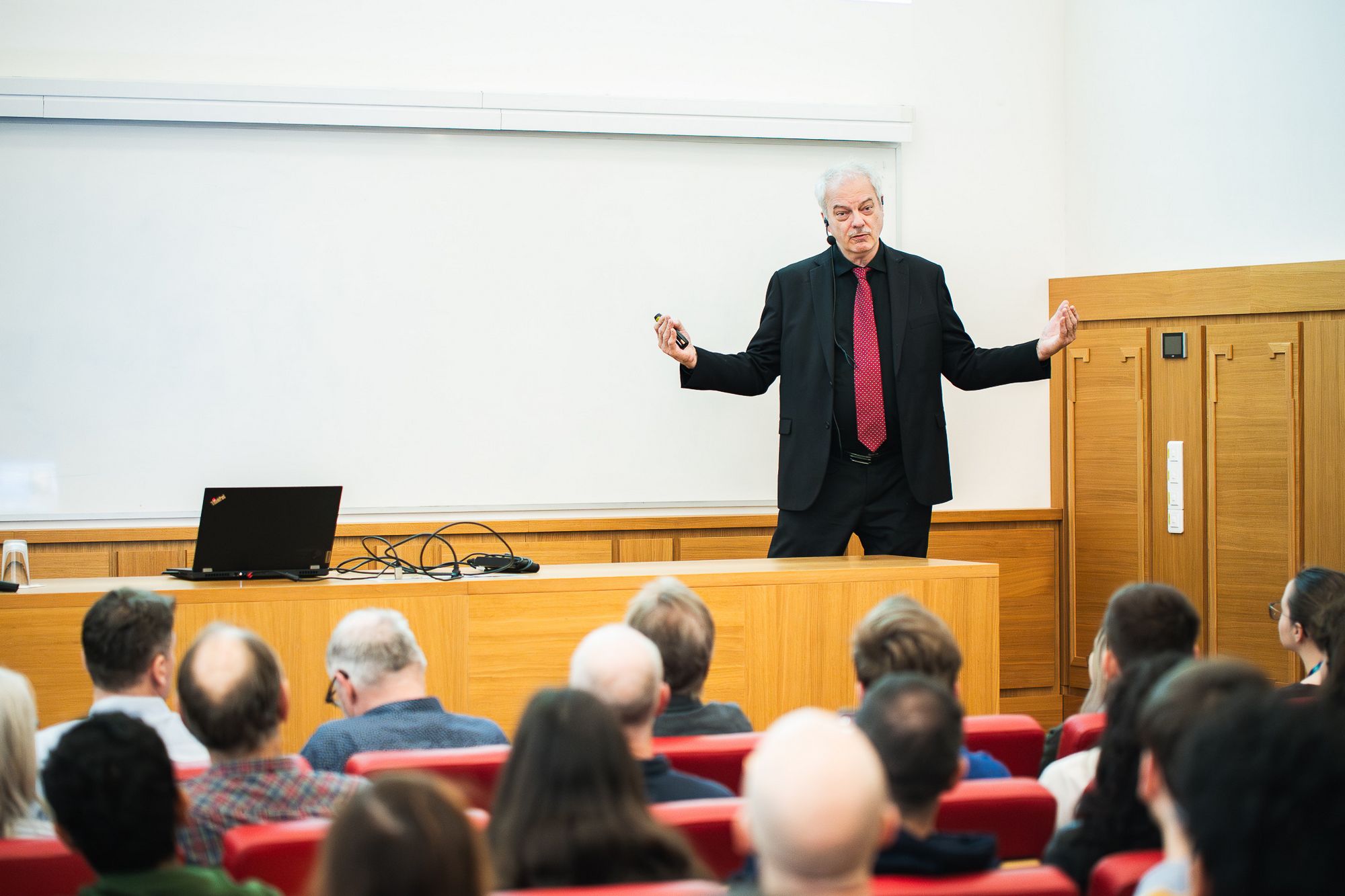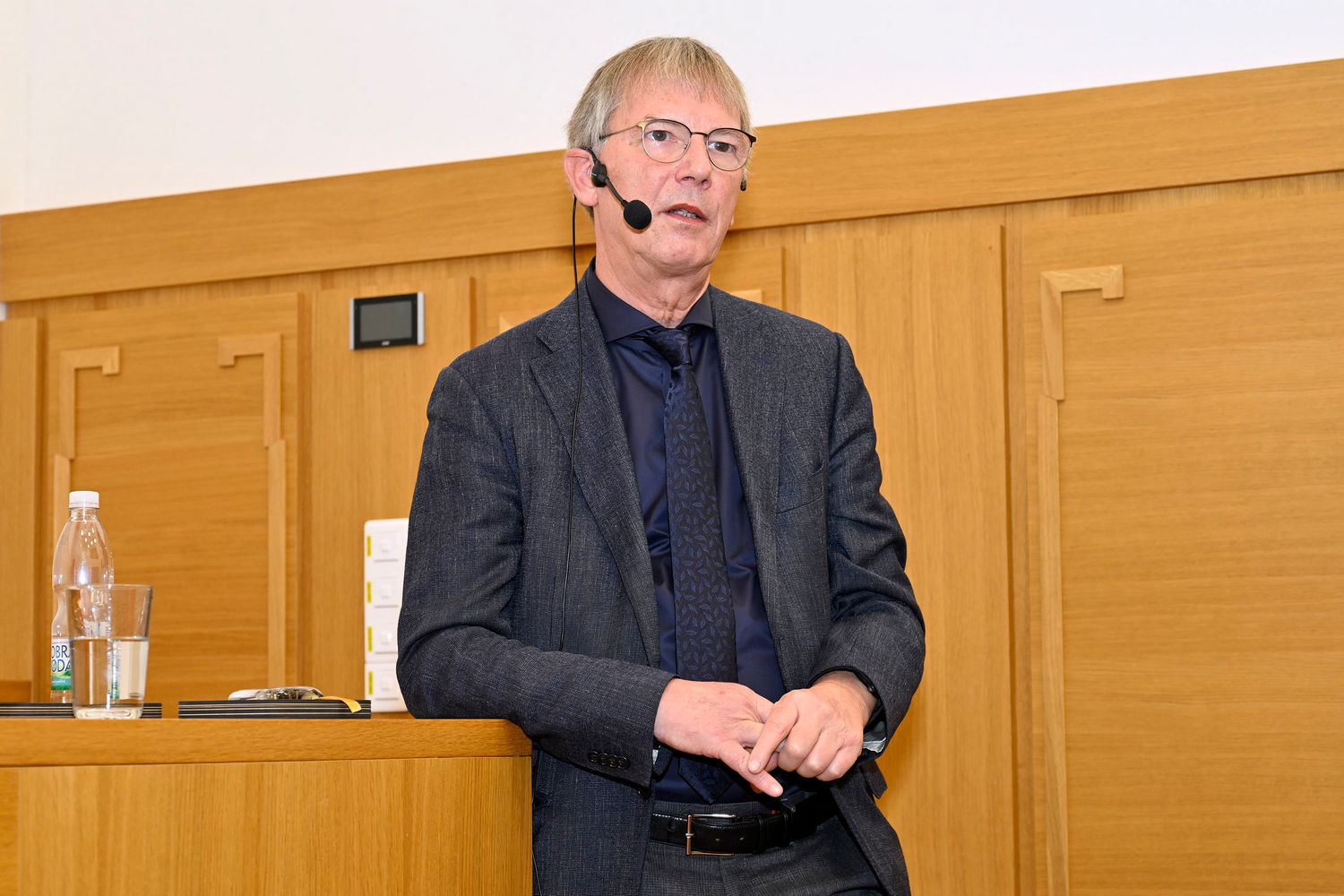Women in Science at the IOCB have held a new lecture and workshop of the Dana Hocková series

In mid-May, IOCB Prague has held yet another lecture organized by the institute’s Women in Science initiative. This time, the invitation was accepted by the excellent scientist Prof. Štěpánka Vaňáčová from the CEITEC research centre in Brno. The topic ‘Stranger things – the unencoded part of RNA’ attracted such a large audience that the followers filled the main lecture hall at the IOCB to the brim.
In the afternoon, a seminar was held to share information on specific problems faced by women in science and research. Štěpánka Vaňáčová chose an appropriate title for the discussion: ‘Always look at the bright side of life’. Women, as evidenced by available data, still have to overcome greater obstacles than men if they decide to pursue a scientific career. To always have in mind the bright side of life is therefore all the more challenging for them.

During the seminar, Professor Vaňáčová described her professional and life path, in which mentors were important to her. She could not have reached her achievements without them. In particular, she remembered intensely Elisabetta Ullu from the prestigious Yale University. Thanks to her, she knows that it is crucial to meet people that help novice women scientists and, when the roles change, to, in turn, help younger ones. In Czechia, according to Štěpánka Vaňáčová, there is a wide range of prejudices: ‘There is a subconscious scepticism that women cannot manage to lead a scientific group,’ she describes, adding that: ‘Unfortunately, this view sometimes persists even among women themselves.’
According to the latest Monitoring Report of the National Contact Centre for Gender and Science of the Institute of Sociology of the Czech Academy of Sciences, the number of women among researchers has increased slightly in recent years. In 2020, this percentage was less than 28%. However, despite some progress in this area, Czechia is still the worst of the European Union countries in this regard. In addition, Czech science is struggling with a large drop in female representation at the transition between doctoral studies and research work itself. While 60% of those that complete their master's study are women, less than 45% decide to pursue a doctorate and only 27.6% enter the research field itself. This logically implies a low proportion of women in leadership positions.

The Women in Science initiative at the IOCB has been trying to improve working conditions since 2017. Its aim is to devise and subsequently put across measures that will allow women to continue their scientific careers despite the numerous obstacles they face. Moreover, the IOCB has committed itself to taking these measures in the HR Award project Action Plan.
The first ever Women in Science seminar was held in July 2017 and was initiated by the then member of the International Advisory Board of the IOCB Cynthia Burrows from the USA. Its recommendations and subsequent discussions resulted in proposals for changes that have become the basis for further work of the Women in Science initiative at the IOCB. Among other things, Prof. Burrows advises women to learn from each other and ask for feedback, to actively participate in discussions, to regularly ask for promotions and fair pay, and not to blame themselves for the failure of the projects in which they participate.
The first event was also attended by the deputy director of the IOCB and active member of Women in Science, Pavlína Malloy Řezáčová, who adds: "Cynthia's seminar was the proverbial spark that ignited the Women in Science initiative at the IOCB. It was later followed by seminars focused on the scientific careers of successful female scientists and debates on grant opportunities, kindergartens or the pay gap."

The fact that the IOCB leadership team is aware of the outlined problem is evidenced, among other things, by the financial subsidy for childcare costs granted to parent scientists returning to work. This support is mainly received by women, as they are the ones on whom the main burden of caring for the family still rests. And so, Women in Science at the IOCB continue their activities. Members of the initiative are pondering how to involve more women scientists at the beginning of their professional careers. The objective is that fewer women in Czechia abandon research work after attaining their doctorate. Today this percentage is almost 18%.
The series of lectures and seminars at the IOCB bears the name of Dana Hocková, a brilliant medical chemist and proud mother of two daughters, who tragically succumbed to cancer two years ago. It was she that initiated the informal meeting of women working in science after the Covid break and thus contributed to the continuation of such important activities.










